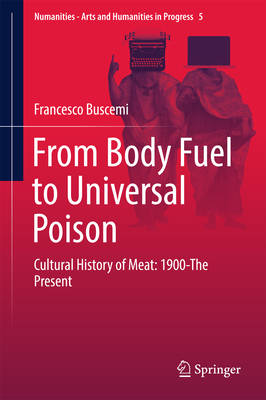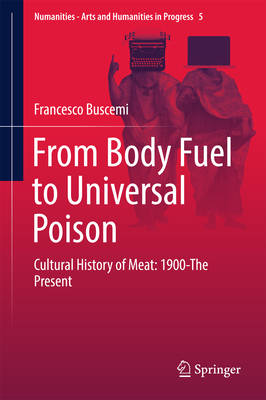
- Retrait gratuit dans votre magasin Club
- 7.000.000 titres dans notre catalogue
- Payer en toute sécurité
- Toujours un magasin près de chez vous
- Retrait gratuit dans votre magasin Club
- 7.000.0000 titres dans notre catalogue
- Payer en toute sécurité
- Toujours un magasin près de chez vous
110,45 €
+ 220 points
Format
Description
This book explores our changing relationship with meat as food. Half storytelling and half historic work, it analyzes the way in which humans have dealt with the idea of eating animals in the Western world, from 1900 to the present. The story part of the book follows the rise and fall of meat, and illustrates how this type of food has become a problem in a more emotional way. The historical component informs and offers readers key data. The author draws on theories of circular societies, smart cities and smart countries to explain how and why forms of meat production that were common in the past have since all but disappeared. Both components, however, explain why meat has been important and why it has now become a problem. In tracing the fall of meat, the author identifies a host of dilemmas. These include fossil energy, pollution, illnesses caused by eating meat, factory farming, and processed foods. Lastly, the book offers a possible solution. The answer focuses on new forms of meat obtained without killing animals and in a sense resembles renewable energy. Overall, this unique cultural history offers revealing insights into how meat affects social relations, interpersonal relationships, and humanity as a whole.
Spécifications
Parties prenantes
- Auteur(s) :
- Editeur:
Contenu
- Nombre de pages :
- 154
- Langue:
- Anglais
- Collection :
- Tome:
- n° 5
Caractéristiques
- EAN:
- 9783319720852
- Date de parution :
- 04-01-18
- Format:
- Livre relié
- Format numérique:
- Genaaid
- Dimensions :
- 181 mm x 241 mm
- Poids :
- 421 g

Les avis
Nous publions uniquement les avis qui respectent les conditions requises. Consultez nos conditions pour les avis.






